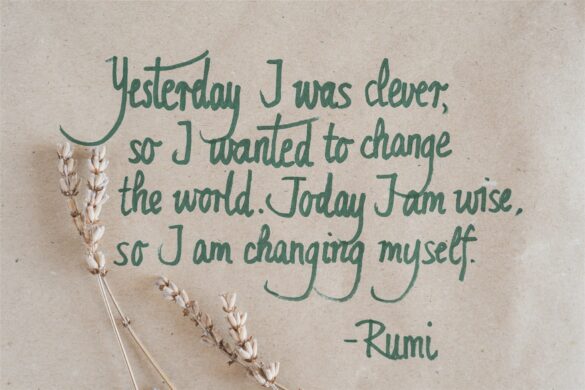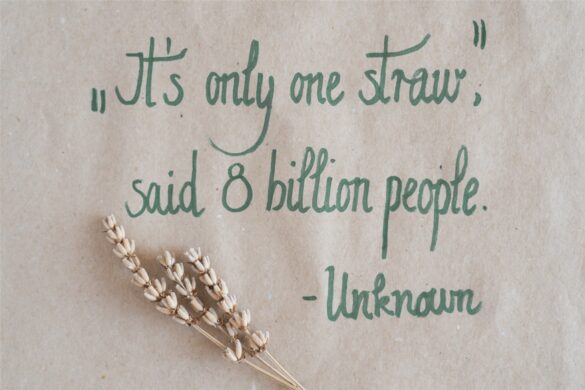What is the Zero Waste movement

Zero waste is a movement whose purpose, as the name implies, is to live in such a way that we avoid producing waste as much as possible. Unfortunately, obtaining a waste-free rate of 100 percent is unattainable, but we can get close, or at least attempt. The goal is to select products made of environmentally friendly materials that will last a long time and are simple to maintain. Finding a new use for them or repurposing the pieces is all part of the effort to keep them out of the landfill. The following is the main definition of Zero Waste:
“The conservation of all resources by means of responsible production, consumption, reuse and recovery of all products, packaging, and materials, without burning them, and without discharges to land, water or air that threaten the environment or human health.”
Although our government and large corporations have a larger role in producing waste, we as consumers who buy their products have the ability to make a difference in what, where, and how we buy and use our resources. It may seem that our actions don`t have a big impact, especially because we cannot see the results, but that is exactly what brought us here in the first place. Because we haven’t seen the bad consequences of our environmental decisions, we are feeling them now. It is only human and natural that we react only to an immediate danger.

When we discuss climate change and what we can do as individuals, the three main factors that are constantly mentioned: airplanes and traffic cars, overcrowding, and veganism, which frequently results in people waiving their hands because they are too drastic adjustments for most of them.
And they're right: electric cars are still too expensive, and train infrastructure isn't nearly as good as it should be for the year we live in, so flying is still our preferred mode of transportation. Climate change is well down on the list of reasons to have or not have a kid, and rightly so. Changing our entire food, which we have enjoyed since childhood and is associated with our fondest memories, for something we don't even see, is a failed effort from the start.
When we find ourselves in situations where we are aware that we cannot give 100 percent of ourselves, that doesn`t mean that we shouldn`t give as much as we can. Riding a bike to work or taking a walk instead of driving a car can be our contribution. We can take action by purchasing wooden toys or using cloth diapers instead of plastic diapers. Having a meat-free day once a week can be a huge improvement. It also helps if we have a motive for our shift other than the environment, such as eating less meat for animal welfare or riding a bike for physical activity.
(Un)fortunately, there other modifications that are simple to implement and make a significant difference when combined.
Plastic is an example of something that may be found almost anywhere. Just a few examples include plastic bags, water/juice bottles, toothbrushes, shampoo/deodorant bottles, and packaged goods. The list is long, and you can see the consequences for yourself now that waste separation is mandatory in our country. Consider how much plastic your family discards on a weekly basis, keeping in mind that, unlike glass, plastics are only slightly recyclable.
The textile sector and quick fashion are another example. Zero waste urges us to buy high-quality clothing when we truly need it, from local producers, for long-term use, and made of as many natural materials as possible. Flea markets and second-hand stores are also available. Let us not forget to repair or reuse the clothes before recycling them.
That way you follow the five main rules of the Zero waste movement, which are:
1) Refuse - say no to single-use plastic products including store bags, coffee shop straws, conference plastic bottles, promotional freebies, flyers and so on.
2) Reduce the number of items we purchase by being mindful of what we want and require. Do we actually need this item, and if so, what material is it made of, is it of good quality, and is it easy to maintain? Products that are well-made will last longer, lowering the number of times you'll need to replace them and consequently spend more money.
3) Reuse and repair - If something is broken, see if it can be repaired first, and if not, see if it can be used for something else. Try to observe the object through the eyes of a child to see what the item's potential is. Always look for inspiration online; you'll be amazed at how creative people can be.
4) Recycle – sorting our waste properly (paper with paper, plastic with plastic) to minimalize what we send to landfill. That being said, the fact that it is under number four is not a coincidence. This should never be our first option, but rather a last resort if we haven't been able to avoid purchasing it in the first place or reuse it.
5) Rot – composting scraps from fruits and vegetables. Some of us are fortunate to have a garden or some green surface nearby. For others, composting in the apartment is also a possibility, although it does involve worms, so it may not be everyone's cup of tea. There is an option to refrigerate or freeze your scraps until weekend when you can visit nature and “feed her”, as I like to say.

It all comes down to this; our thoughts, intentions and actions matter and they do make a difference in all aspect of our life. Whether we went for a walk today or not, it does matter for our physical body, did we had a good sleep or not, it does matter for our mental health and did we said and did something we love today, it does matter for our emotional wellbeing.
What it doesn't matter is how tiny a change we make, as long as we are making it; when it all adds up, both in your life and in the lives of others, the outcome will be obvious. We don`t have to see it immediately to feel that we are on some level making a difference. If for nothing else, then for our own piece of mind, which in one way or another has to transmit in the world around us.
There is a famous zero waste quote:

It's easy to dismiss quotes like this in a sea of similar ones, especially these days, but they can always be useful as a reminder or interpreted however we think or like best. In that regard I invite you to forget for a moment about all the other 8 billion people, and just think about that one straw as one of many decisions you yourself go through out each day; be it about single-use plastic or any other way you can harm or help with the pollution, in which we're all connected to in different ways and magnitudes. . With each decision, learn to value self-pride in being responsible over convenience and instant gratification. With time, I promise, you will enjoy "tougher" decisions more and more.


